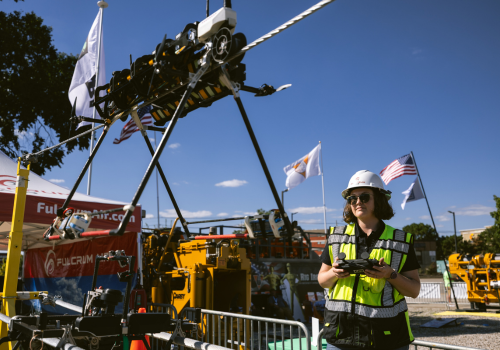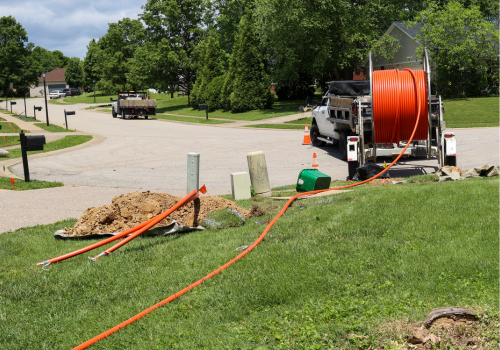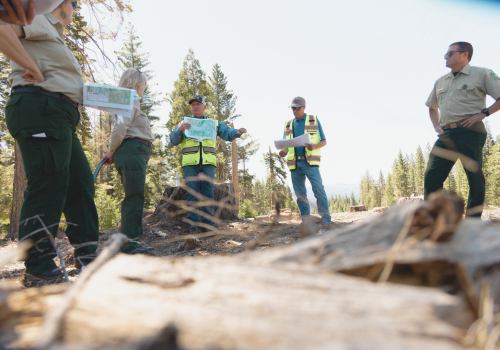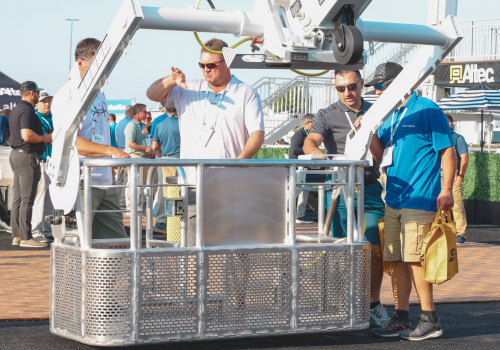Vacuum excavators, hydrovac, or vacuum trucks continue to become increasingly popular among construction contractors, especially for those specializing in utilities. Using a hydrovac instead of a normal excavator allows crews to bring underground utilities to daylight for repair, inspection, or verification; also called daylighting or potholing. By using a hydrovac, or vac truck (hydro excavation) to dig instead of a typical excavator (mechanical excavation), the risks of underlying utilities are significantly decreased.
Not only are vac trucks quite niche in their application, but they’re also costly. If you are in the market for one, consider the following.
1. How much do you want to carry?
How much can the truck hold? Vac trucks have two tanks—one water tank and one debris tank. Once the debris tank is full, the vac truck has to dump the content from its debris tank before it can continue excavating. Being able to carry more will result in fewer trips to the dump, which means more time excavating and making money.
2. What axle configuration will you need?
Foremost vac trucks come in tandem and tri-axle configurations. Knowing the weight you want to carry and how much you can legally carry will help you choose how many axles you need.
“Helping customers understand their needs, including the number of axles they need to carry the desired load is where I begin the customer journey when a customer doesn’t know what they need,” says Rod Bischke, General Manager of Summit Truck Bodies (Summit Truck Equipment in Canada)--Foremost Vac Trucks distributor and manufacturer of high-quality, custom-designed truck bodies.
3. When is bigger better?
A hydrovac is different than a mechanical excavator in that the vac truck can’t dump its load anywhere. With dry excavation (using an excavator), the dirt can be deposited anywhere. However, once you introduce water into the process, now the excavated material has to be dumped at specific sites that collect what is considered to be contaminated material.
“Someone working in the patch in Alberta who doesn’t have to worry about traveling main highways while loaded may choose to buy the biggest truck they can afford, so they can dig all day without leaving to dump the collected material,” says Tom O’Brien, Customer Liaison at Foremost Vac Trucks. “Also, DOTs are pulling over hydrovac trucks more regularly than they did 15 years ago. And drivers are getting ticketed, so they’re becoming more conscious of their truck’s capacity and the legal weight limits.”
4. When is bigger not better?
The flip side to carrying as much weight as you can is to be small and maneuverable.
“Someone in downtown Toronto who has to maneuver small streets and a lot of traffic will want something smaller. Of course, if you work in a city like Toronto, it can take two hours to drive to a dump site, so you can spend more time traveling than digging,” says O’Brien. “It’s all about where they’re working the most.”
To satisfy the needs of various clients, Foremost started the Rival line a few years ago in addition to their line of Conventional vac truck line and why they build their models in four different model sizes. “The customer in Chicago wants something completely different than the customer in Montana,” says O’Brien.
5. What are your personal preferences?
According to O’Brien, some people want a larger blower size for stronger suction, while others want dual hose reels or larger booms. Other customers prefer one brand over another brand just because of how each one empties its waste.
“When shopping between hydrovac manufacturers, it’s like choosing between Chevy, GM, and Ford. Everyone has their preferences. And each one has things people like and things people don’t like,” says O’Brien.
6. How can equipment options enhance your business?
Always inquire about what options are available. There could be a feature available you didn’t realize could be a great benefit to you.
For example, the Foremost Rival line can be equipped with a misting kit, which gets applied to incoming dry material to make it fall faster. They can also be equipped with hydraulic connections, so customers can run a tamper or jackhammer, or other powered equipment off the rear of a truck instead of bringing in a separate machine or power source.
7. How are you going to service the equipment?
All equipment breaks down—no matter which brand you buy—what’s more important is how fast you can get it back on the road, says Bischke.
“I used to own and operate equipment before becoming a distributor, and what I found was one of the biggest problems was the lack of service,” says Bischke. “Since we can service our customers’ trucks across Canada, it’s a huge benefit for us and our customers. Readily available parts and service is one of the reasons people seek out Foremost Vac Trucks.”
8. How can you get a good deal?
When it comes to buying a hydrovac, don’t look for discounts. For many manufacturers, inventories are tight, supply chains are slowing down sales, and there’s a lot of competition for new equipment.
“The only way to pay less is to take your chances at the auction,” says Bischke. “However, Foremost vac trucks are designed to decrease owning and operating costs.”
“On our Conventional line, we put a bigger door on the debris tank for easy removal of debris, which saves time cleaning, says O’Brien. “We’ve also improved the filtration system so there’s less wear and tear on filters. These filters can cost $1000. And these trucks go through filters quickly. If we can lengthen the life of the filters, we can save our customers some money.”
Subscribe to The Utility Expo monthly newsletter to receive more industry insights like this.












